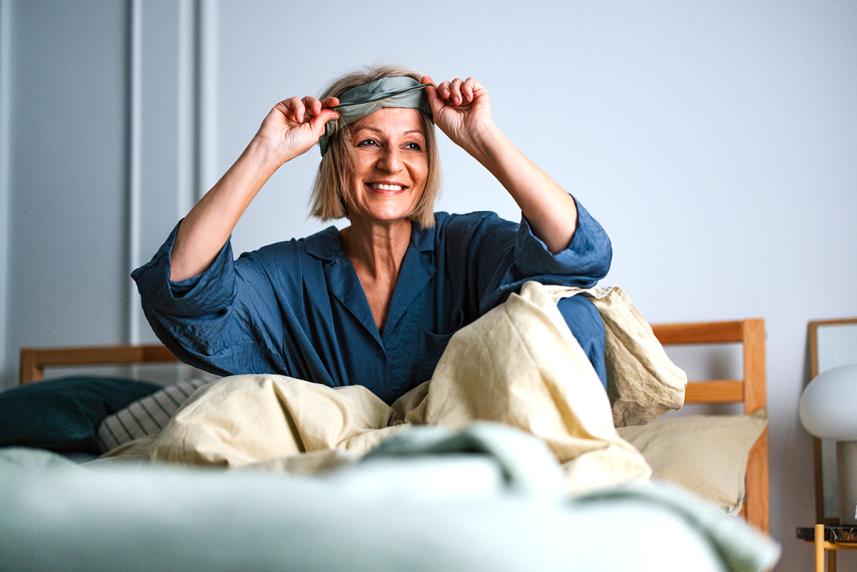Sweet slumber awaits
Three tricks to getting a better night’s sleep ... tonight.

It’s true for your grandkids and for you: When your sleep is lousy, everything is lousy. The body is governed by a circadian rhythm, your body clock, which ticks along with the earth’s 24-hour cycle and tells your cells when to act. The sleep-wake cycle is your primary rhythm, says Frank Lipman, M.D., co-author of Better Sleep, Better You. When that rhythm is off kilter, it can impact your health.
But, as you age, getting a good night’s sleep becomes more difficult, thanks to natural changes in the brain region that controls circadian rhythm. Older adults also produce less melatonin, disrupting shut-eye.
“It’s not that older adults need less sleep — it’s that they need to put more effort toward it,” says Dr. Lipman. If you struggle with senior sleep challenges, these solutions can help.
You have difficulty falling or staying asleep.
As many as half of older adults report sleep issues, research in the Journal of Clinical Sleep Medicine found. To combat insomnia, make your bedroom a sacred space: Keep it cool, use a white noise machine, and don’t bring your phone or tablet into bed with you, says Dr. Lipman.
You’re waking up too early.
As you age, your body clock shifts forward — you may rise with the sun and feel wiped out by afternoon. Set an earlier bedtime, so you’re well rested regardless. “Going to sleep and waking up at the same time daily keeps you in a good rhythm,” explains Dr. Lipman. Make your room dark, or wear an eye mask. “Light inhibits your production of melatonin.”
Your sleep quality is consistently crummy.
“Chronic sleep problems are usually a symptom of another underlying imbalance,” says Dr. Lipman. If issues persist, it could be your hormones, your stress levels, or even your gut microbiome, so it’s worth discussing with your doctor.


